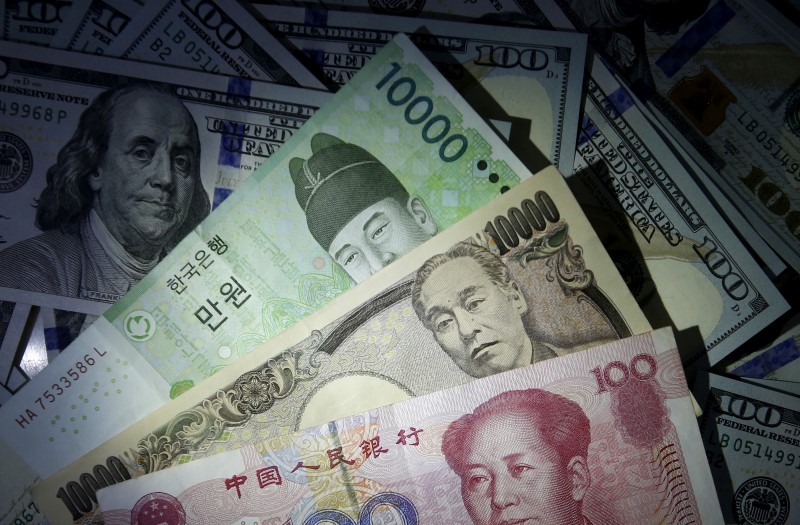Investing.com’s stocks of the week
By Gertrude Chavez-Dreyfuss
NEW YORK (Reuters) - The dollar fell on Wednesday after the Federal Reserve held interest rates steady, as expected, and lowered its economic growth forecasts for this year and next, suggesting it would be less aggressive in tightening policy after 2016.
Against the yen, the dollar dropped to its lowest in more than two years after the Fed statement.
The Fed did signal that it still plans two hike rates twice this year as it expects the U.S. jobs market to strengthen, but the futures market believed otherwise.
Fed funds futures, based on the CME Group's FedWatch, moved to price in just a 10 percent perceived chance of a July rate hike. Chances of a September hike were placed at 26 percent, while the odds for a November and December rate rise were under 50 percent.
"The tone of the statement is absolutely dovish and that was reflected in the fact that the dollar was sold off, not super aggressively, but we did see it move," said Joe O'Leary, senior foreign exchange trader at Silicon Valley Bank in Santa Clara, California.
"With what's going on globally, I don't think the Fed will be as aggressive in raising rates as it once was a couple of months ago."
Yellen, in a press briefing after the meeting, said one reason for keeping U.S. rates steady was uncertainty surrounding an upcoming referendum to determine whether Britain would leave the European Union.
In afternoon trading, the dollar fell to 105.50 yen
The euro also gained against the dollar, up 0.5 percent to $1.1265
The dollar index overall slid 0.3 percent to 94.606 (DXY).
With the Fed out of the way, the focus has shifted again to Brexit.
Betting odds indicate the implied probability of a British vote to stay in the EU is 62 percent, according to Betfair. The implied probability of an In vote fell on Tuesday to around 55 percent, then recovered to 62 percent later in the day.
"The initial impact of a Brexit on the euro should be negative as fears about the growth outlook and the integrity of the EU will fuel expectations of more ECB (European Central Bank) easing," wrote Credit Agricole (PA:CAGR) in a research note.
But the bank doubted that Brexit will lead to the demise of the EU. It also believes that euro weakness will not be sustained over the longer term.
